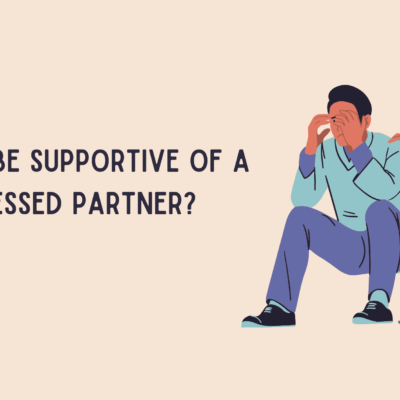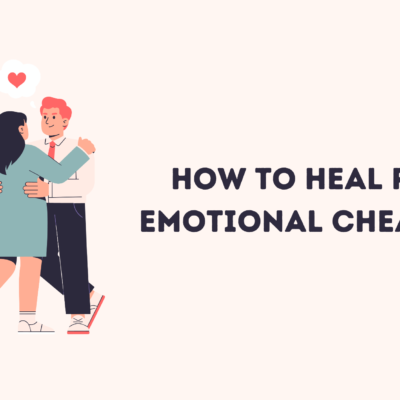Why Relationships Fail: Relationships are one of the most rewarding aspects of human life, offering companionship, love, and a sense of belonging. Yet, despite best intentions, many relationships don’t last. Breakups, divorces, or silent disengagements are common, leaving people wondering: “Why did it fail?”
The truth is, relationships rarely fail because of one single reason. Instead, they unravel due to a combination of unmet needs, miscommunication, emotional wounds, and lack of growth. Understanding why relationships fail not only helps us heal but also equips us to build stronger connections in the future.
This article explores the most common causes of relationship breakdowns, the underlying psychological dynamics, and ways to prevent them.
Also Read:
1. Unrealistic Expectations
Many relationships begin with idealized visions of love. Movies, social media, and cultural narratives portray romance as constant passion and harmony. When reality sets in, disappointment follows.
- The honeymoon effect fades: Intense infatuation naturally declines over time, and expecting it to last forever sets couples up for disillusionment.
- Expectation of perfection: Believing a partner should meet all emotional, social, and practical needs creates pressure.
- Unspoken assumptions: One partner may expect the other to “just know” what they want without communicating it.
When expectations go unvoiced or are unrealistic, resentment grows.
2. Poor Communication
Communication is the backbone of a relationship. When it breaks down, misunderstandings and distance creep in.
- Lack of listening: Partners hear to respond, not to understand.
- Avoiding difficult conversations: Fear of conflict leads to suppressed issues that eventually explode.
- Harsh communication styles: Criticism, sarcasm, or defensiveness erode trust.
Without open, respectful dialogue, couples struggle to resolve problems effectively.
3. Loss of Emotional Intimacy
Emotional intimacy—feeling safe, valued, and deeply connected—keeps relationships strong. Over time, partners may stop investing in this bond.
- Busy schedules and stress push meaningful conversations aside.
- One or both partners become emotionally unavailable due to personal struggles.
- Small betrayals of trust, like dishonesty or lack of support, weaken closeness.
When emotional intimacy fades, partners often feel like roommates rather than lovers.
4. Lack of Trust and Betrayal
Trust is the foundation of stability. Once broken, it’s difficult to rebuild.
- Infidelity: Affairs, whether emotional or physical, are a leading cause of relationship failure.
- Deception: Lies, financial dishonesty, or hidden behaviors create cracks.
- Broken promises: Failing to keep commitments erodes confidence in the relationship.
Even without major betrayals, consistent small breaches of trust accumulate into distance.
5. Incompatibility and Growth in Different Directions
Attraction may bring people together, but compatibility sustains them. Over time, couples may realize their values, goals, or lifestyles don’t align.
- Different desires around children, finances, or careers.
- Conflicting cultural or religious beliefs.
- Divergent levels of ambition, adventure, or stability.
People also change. If partners grow in different directions without adjusting together, the gap widens.
6. Neglect and Taking Each Other for Granted
At the start of a relationship, effort is natural—dates, surprises, and thoughtful gestures. As time passes, effort often declines.
- Work and responsibilities overshadow the relationship.
- Appreciation and affection fade into routine.
- Partners assume the relationship will “maintain itself.”
Neglect makes one or both feel unseen, undervalued, or lonely.
7. Unresolved Conflicts
All relationships have disagreements. The problem arises when conflicts are not resolved constructively.
- Stonewalling: Shutting down instead of addressing issues.
- Scorekeeping: Bringing up old mistakes during new arguments.
- Escalation: Minor disagreements turning into major battles.
When conflict becomes toxic instead of productive, resentment replaces love.
8. Emotional Baggage and Past Trauma
Unhealed wounds from childhood or past relationships often resurface. For example:
- Fear of abandonment leads to clinginess.
- Childhood neglect fosters difficulty with intimacy.
- Past betrayal causes constant suspicion.
Unless addressed, these patterns sabotage even healthy relationships.
9. Power Struggles and Control Issues
When one partner tries to dominate, control, or “fix” the other, imbalance emerges.
- Constantly needing the last word.
- Restricting freedom or independence.
- Using guilt, manipulation, or ultimatums.
Healthy relationships thrive on equality and mutual respect. Power struggles suffocate love.
10. Financial Stress
Money doesn’t guarantee happiness, but financial stress can strain relationships.
- Differing attitudes toward spending and saving.
- Debt, unemployment, or unstable income.
- One partner feeling burdened by financial responsibility.
If money conversations turn into constant conflict, it weakens the partnership.
11. Lack of Physical Intimacy
Physical intimacy goes beyond sex—it includes touch, affection, and closeness. When physical connection diminishes:
- Partners may feel unwanted or unattractive.
- Resentment builds if needs aren’t discussed.
- Emotional distance deepens.
While passion naturally fluctuates, neglecting intimacy altogether can cause disconnection.
12. External Pressures
Sometimes, relationships fail not just due to internal issues, but outside forces:
- Family interference or cultural expectations.
- Long-distance challenges.
- Overwork or stressful environments.
If couples don’t stand united against external pressures, cracks form.
13. Avoidance of Personal Responsibility
Relationships falter when partners refuse accountability. Blaming the other for every problem creates hostility. Growth requires both people to acknowledge their flaws and make changes.
14. Loss of Shared Vision
Couples need common goals—whether building a family, pursuing adventures, or supporting each other’s dreams. Without shared vision, relationships feel aimless.
15. The Role of Complacency
Sometimes, relationships fail not due to dramatic problems but because of quiet drifting. Couples stop nurturing the bond, assuming love will sustain itself. Slowly, distance replaces closeness until separation feels inevitable.
Preventing Relationship Failure: What Works
While some relationships naturally end, many can thrive with intentional effort.
- Communicate openly and kindly. Share feelings honestly without blame.
- Prioritize quality time. Nurture intimacy with dates, conversations, and affection.
- Respect individuality. Encourage personal growth alongside shared growth.
- Practice forgiveness. Let go of grudges and focus on solutions.
- Align values and goals. Revisit your shared vision regularly.
- Seek help when needed. Couples therapy or counseling can prevent small cracks from turning into breaks.
Final Thoughts
Relationships fail for many reasons—unrealistic expectations, poor communication, loss of intimacy, or simply growing apart. Yet, understanding these patterns gives us power. It allows us to heal from past breakups and approach future relationships with greater wisdom.
Every relationship requires ongoing effort, vulnerability, and intentional care. Love alone is not enough; it must be paired with respect, communication, and growth.
When both partners commit to nurturing the bond, facing challenges together, and embracing imperfections, relationships don’t just survive—they thrive.
The secret to lasting love is not avoiding challenges, but learning to face them as a team.






